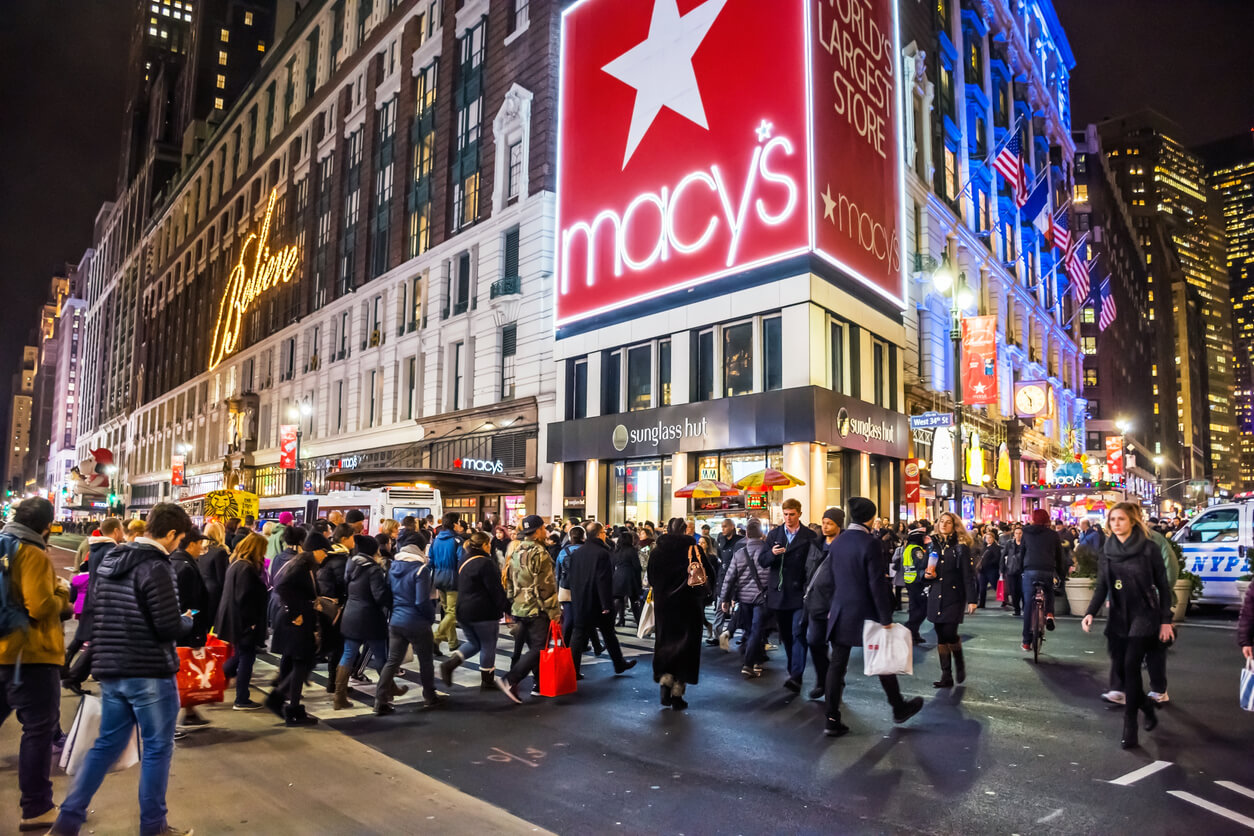| October 11, 2021
New York City is this holiday season’s ultimate shopping destination – here’s how to make the most of it with out-of-home advertising
New York City is a premier holiday shopping destination, attracting millions of tourists and locals to its festive storefronts, holiday markets, Broadway shows, and iconic shopping districts. Each year, the city’s lively streets fill with brands and advertisers eager to capture the attention of shoppers looking for deals, gifts, and memorable seasonal experiences.
Last year, New York City welcomed over 6.5 million visitors between Thanksgiving and New Year’s Eve and is now gearing up for another bustling holiday season. This influx reflects the city’s continued tourism rebound, with annual visitor numbers projected to reach over 65 million—nearly back to pre-pandemic levels. Residents are also ready to join the festivities, flocking to major retail areas like Fifth Avenue, SoHo, and Herald Square to find special holiday deals. The influx of tourists and locals makes NYC an ideal spot for holiday campaigns, providing brands with countless opportunities to engage shoppers during the most wonderful—and busiest—time of year.
Why New York City is a prime location for your holiday retail campaign
For brands and advertisers, the holiday season provides a unique opportunity to capture shoppers’ attention amidst a backdrop of festive energy, heavy foot traffic, and elevated consumer excitement. The density of visitors and locals exploring the city’s popular spots makes billboard and out-of-home (OOH) advertising in New York City particularly impactful, especially when strategically placed to reach audiences in high-traffic areas.
Iconic locations like Fifth Avenue and Times Square are among the top destinations for holiday shoppers, drawing millions each season. However, other hotspots like Chelsea Market, Hudson Yards, and high-traffic hubs like Penn Station also offer prime visibility and audience engagement opportunities. Whether it’s vibrant digital billboards, urban panels, or transit ads on the city’s 36 subway lines and 470 stations, well-placed OOH advertising creates a seamless journey that moves shoppers from awareness to action.
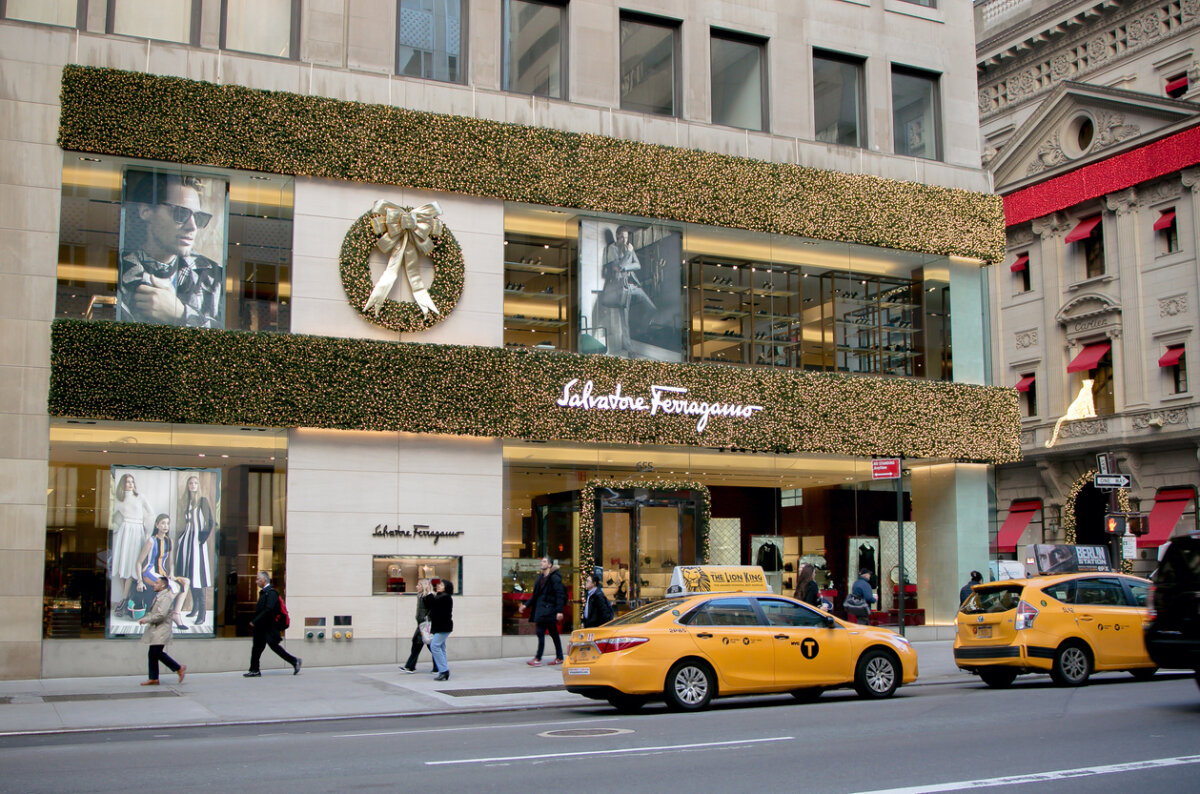
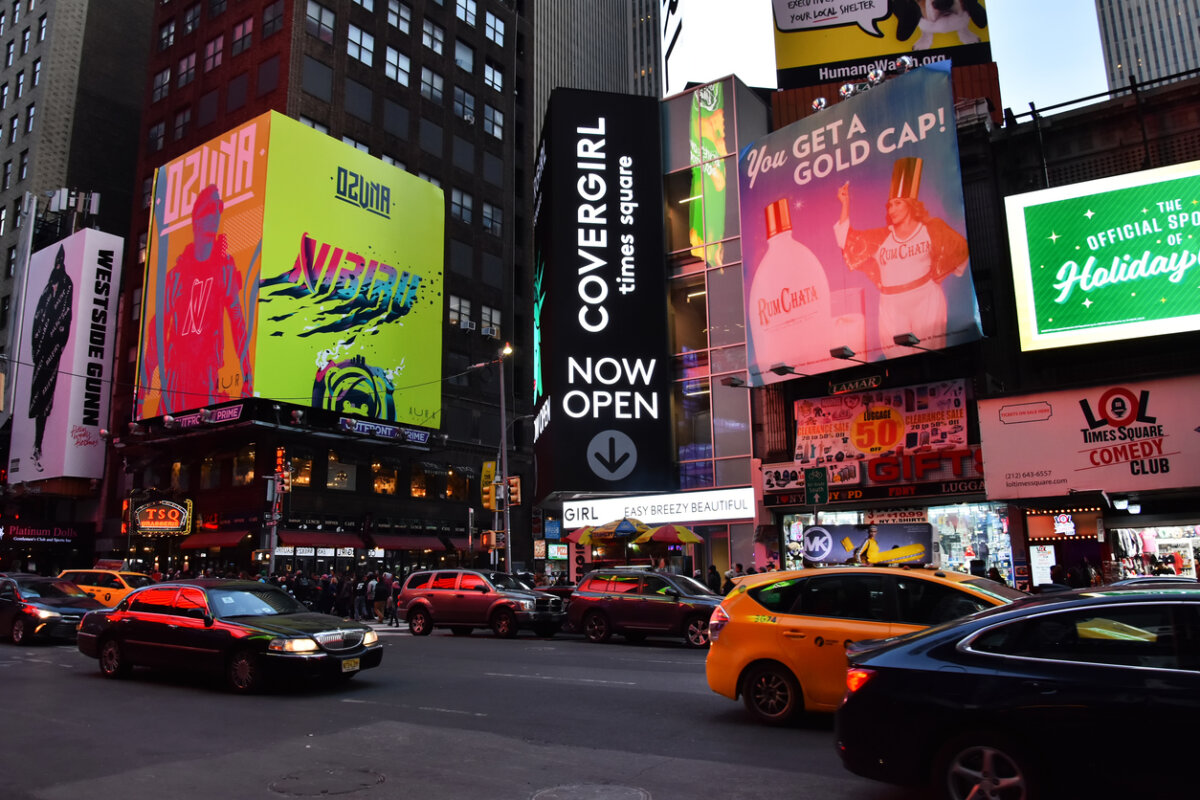
Beyond visitors, the city’s population also offers a desirable demographic for advertisers. With a mean household income approaching $115,000 and a median income of nearly $77,000, NYC residents have considerable purchasing power. Nearly 65% of the population holds white-collar jobs, and over half of the city’s residents are women—who drive almost 80% of consumer spending in the U.S., according to Capital One Shopping. This affluent and influential audience, combined with the surge of holiday tourists, makes NYC a prime location for brands aiming to maximize visibility and conversions during the holiday season.
Leverage different DOOH formats to drive foot traffic, sales, and consideration
Despite the rise in online shopping, in-store experiences remain central to the holiday season. Over 121.4 million shoppers visited physical stores last Black Friday weekend, highlighting the ongoing importance of brick-and-mortar retail during the holidays. This year, roughly 74% of U.S. consumers plan to shop in stores for gifts, according to eMarketer.
With a wide variety of OOH venue types across New York City—from shopping centers and transit hubs to entertainment districts—brands have countless opportunities to drive foot traffic in-store and amplify holiday campaigns. And thanks to programmatic DOOH (pDOOH) advancements, advertisers can run creatives to target specific shopping areas or seasonal needs based on factors like location, time of day, weather conditions, and more. Real-time performance tracking and enhanced attribution also provide valuable insights, allowing advertisers to adjust campaigns on the fly and connect ads to in-store visits, driving higher conversions.
Urban panels, digital billboards, and street-level displays are ideal for catching shoppers’ attention in high-foot-traffic areas near popular shopping districts. Positioned close to retail locations, these ads can serve as timely, contextual reminders that encourage shoppers to stop in or revisit nearby stores. Strategically placed to tap into the holiday hustle, they bring added value with digital capabilities that allow real-time updates—whether it’s highlighting flash sales, limited-time offers, or holiday countdowns to create urgency. Retailers can also personalize messages with festive themes, tailoring content to draw in nearby shoppers and guide them straight to the store.
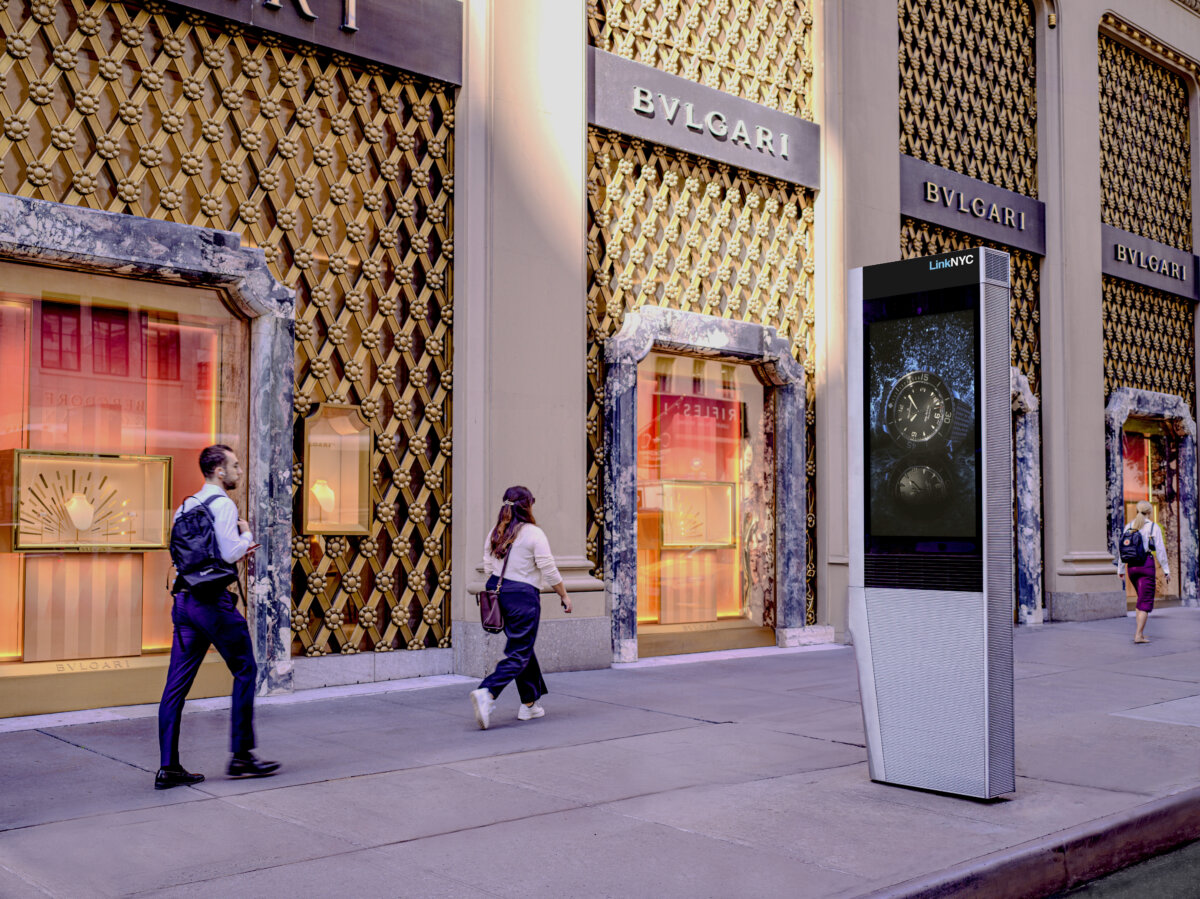
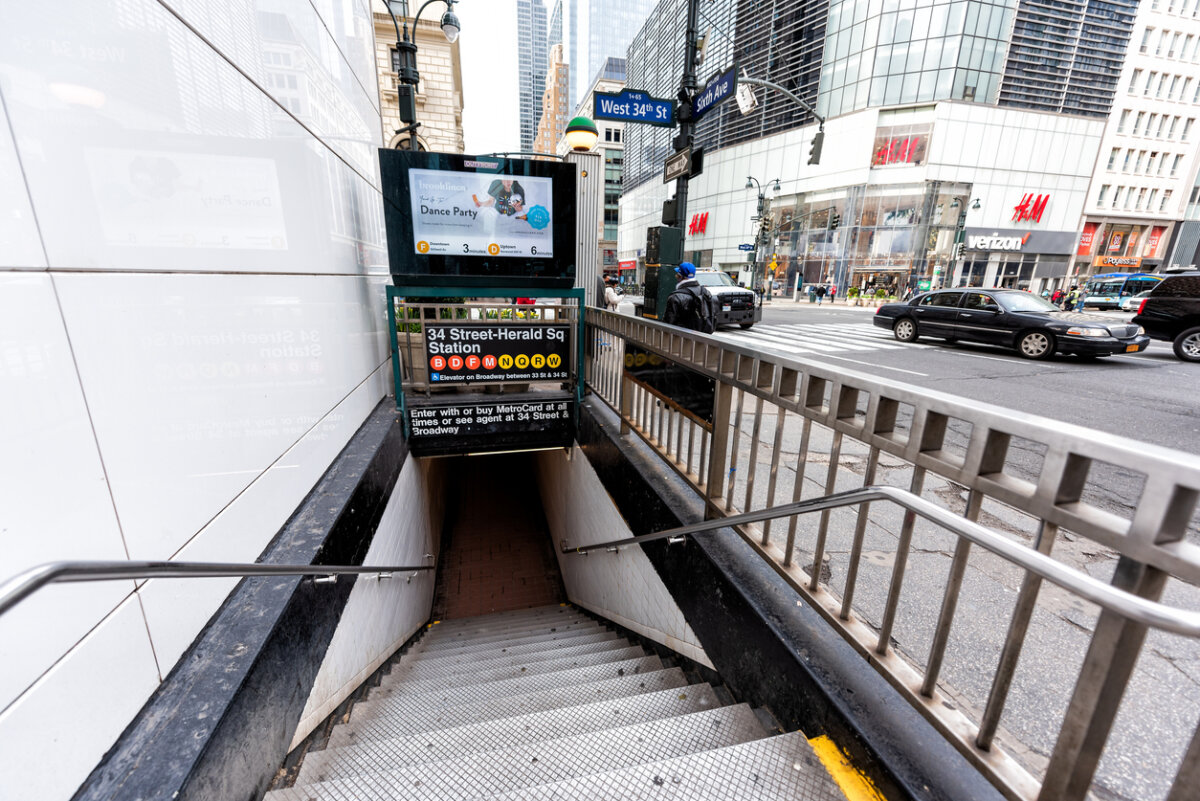
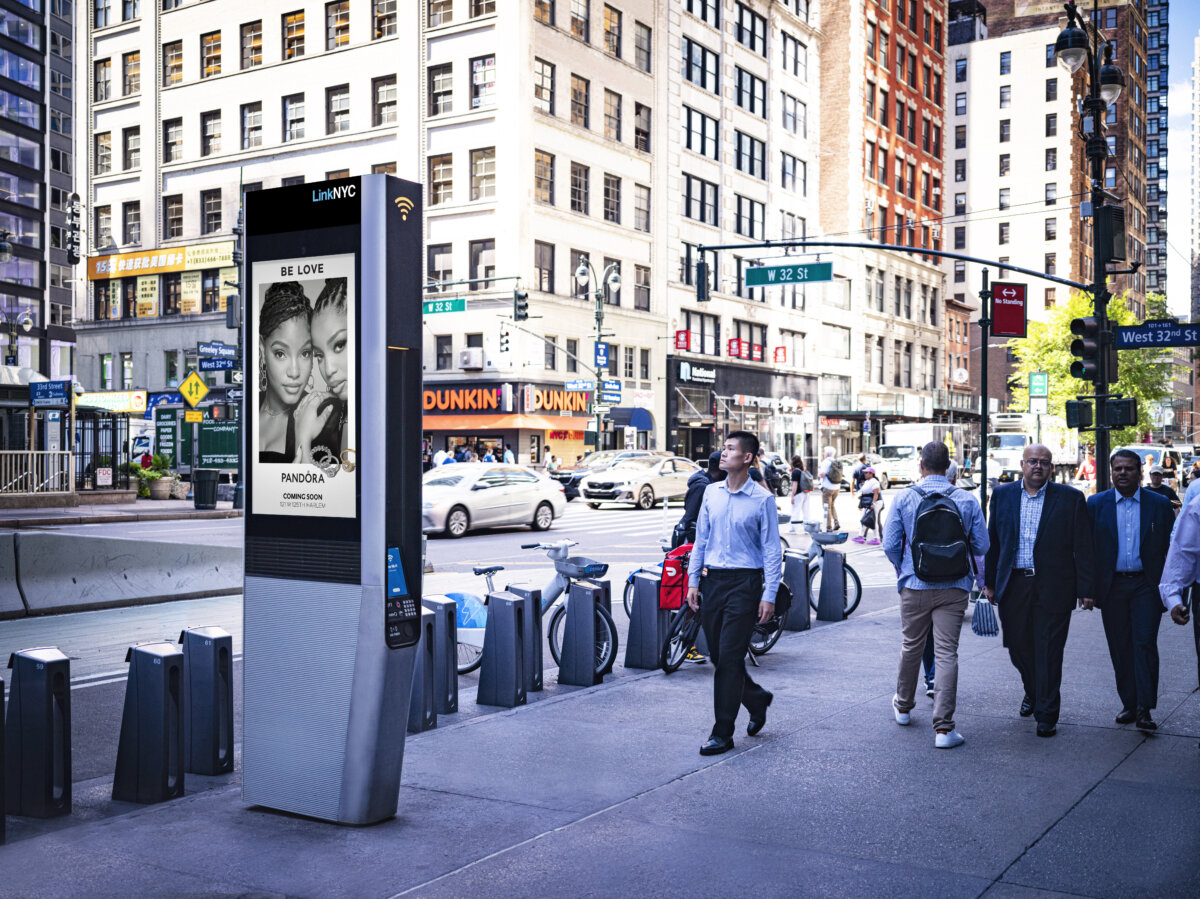
New York City’s extensive transit network offers a wide range of OOH advertising opportunities across subway platforms, buses, taxis, and trains, making it easy to connect with commuters and tourists as they head to major shopping areas. With the addition of QR codes or SMS calls-to-action, brands can further engage viewers by offering exclusive holiday deals or guiding them to nearby locations, boosting the likelihood of an in-store visit.
Ferries into the city also offer prime exposure for advertisers, with OOH displays strategically placed throughout the vessels and terminals. These high-dwell environments engage commuters from all directions as they approach NYC, making a memorable impression right from their arrival. With steady foot traffic and a captivated audience, ferry terminals and onboard displays are ideal for reaching a diverse range of potential customers right at a key entry point into the heart of NYC.
Amplify omnichannel retail campaigns with physical ads
Integrating OOH with digital channels like social media, CTV, and display creates a seamless brand experience across touchpoints. Ads with QR codes or SMS prompts make it easy for shoppers to engage with a brand instantly, allowing them to “see it on a billboard, buy it online,” which boosts brand engagement and drives both in-store and online conversions. These tools can also provide valuable data on foot traffic, website visits, and conversions tied to OOH exposure, demonstrating its effectiveness in a broader omnichannel strategy.
Mobile retargeting adds extra power to an omnichannel strategy by allowing brands to reconnect with audiences online after capturing their attention in the physical world. For example, a shopper walking through SoHo might spot a digital panel promoting a holiday sale at a popular clothing brand. Later, as they check social media or search online, they see ads for the same brand showcasing exclusive discounts or holiday gift ideas. This follow-up keeps the brand in mind, encouraging them to either visit the brand’s website or stop by a nearby store to shop.
A study by the OAAA and Harris Poll supports this, revealing that 30% of consumers have recently noticed OOH ads giving directions to businesses, and, of those, 51% went on to visit the advertised location. Additionally, 74% of mobile users engaged online after seeing DOOH ads, through searches (44%), website visits (38%), or social media interaction (30%). This cohesive follow-up helps brands stay connected across channels and boosts conversions, especially during high-impact times like the holiday season, when mobile e-commerce drives more than half of online sales.
Programmatic DOOH campaigns in action
Fashion and lifestyle retailer Holt Renfrew sought to increase brand consideration and drive consumers to its stores in major cities. To achieve this, they launched a programmatic DOOH campaign with screens placed in high-traffic locations near select stores, including billboards, bus shelters, and more. Combined with digital channels, the DOOH ads delivered outstanding results, generating over 400,000 store visits and a 500% lift in intent to take action.
Similarly, global alcohol brand White Claw used a pDOOH campaign to promote its latest Vodka launch across major U.S. cities, including New York. Ads appeared near bars and liquor stores carrying the product, using a mix of urban panels, billboards, taxi toppers, and in-car screens to reach consumers at prime locations. The campaign was a success, with 1 in 3 people who recalled the ad expressing they would “absolutely” try White Claw’s new spirit.
Premier luggage brand Samsonite also leveraged programmatic DOOH, activating over 300 screens across New York City to boost brand awareness and consideration for its high-quality luggage. By targeting high-traffic areas like office buildings, malls, and residential complexes, Samsonite extended its omnichannel strategy into the physical world, resulting in a 53% lift in purchase consideration and 37% positive recall and brand attribution across the city.
Ask us how to get a free brand lift or footfall study with your OOH buy. Talk to a media specialist today.
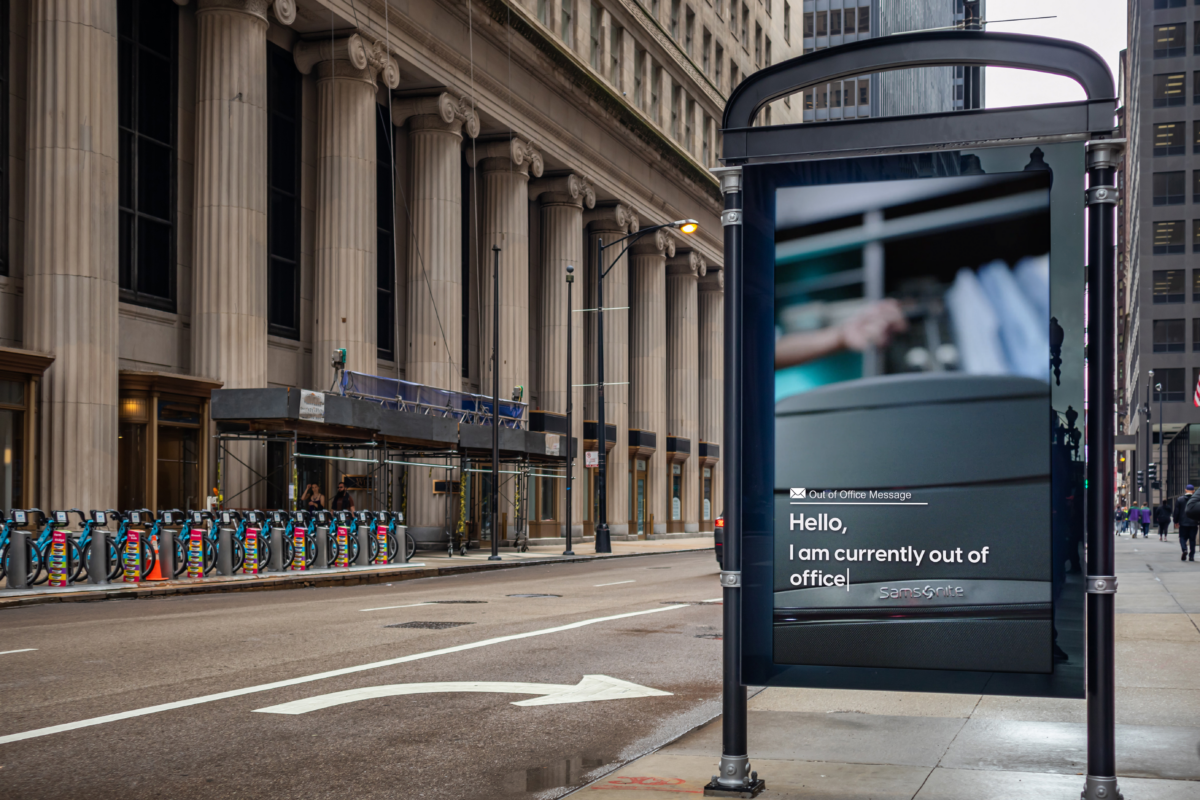
NYC’s dynamic holiday season is the ideal setting for impactful OOH campaigns that put brands in front of engaged, ready-to-shop audiences. From high-traffic retail zones to popular holiday events, OOH advertising reaches people in the heart of the action, sparking interest and encouraging in-store visits and online engagement. Paired with digital tactics like mobile retargeting, OOH ads in NYC offer a powerful way to connect with shoppers at just the right moment, driving visibility and sales during one of the year’s biggest retail opportunities.
